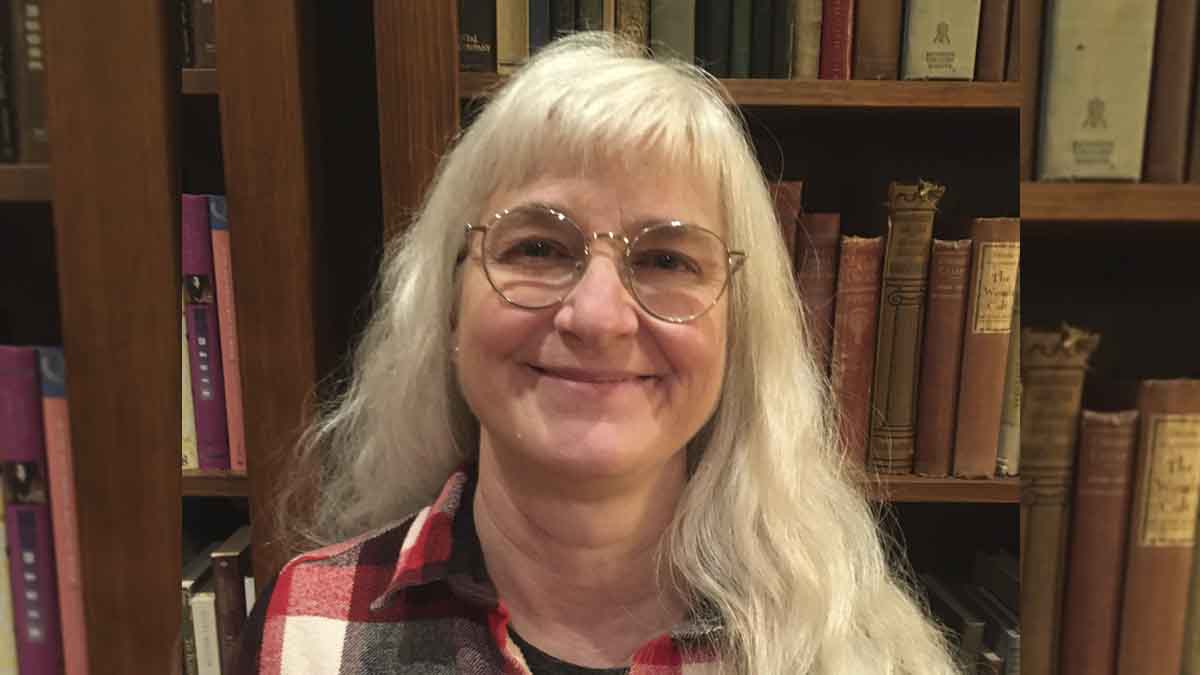AAAS Fellow
April 02, 2025
The American Association for the Advancement of Science (AAAS) has honored Shirley Luckhart, a professor within University of Idaho’s Department of Entomology, Plant Pathology and Nematology (EPPN), as a member of its 2024 class of fellows.
Luckhart, a founder and co-director of the U of I Institute for Health in the Human Ecosystem (IHHE), is among 471 scientists and engineers included in this largest AAAS class, announced March 27.
AAAS is more than 150 years old and is among the world’s largest general scientific societies, publishing the Science family of journals. The association chose to recognize Luckhart based on her “distinguished contributions to malaria with a focus on innate immunity in the mosquito and mammalian host.”
“It’s not just an infectious disease; it’s a disease of poverty and poverty drives this,” Luckhart said of malaria. “It’s a major impact on global economies and social structure, with cases of the disease impacting more than 260 million people’s lives each year. It’s a great human tragedy that deserves attention.”
Luckhart was first interested in diseases affecting wildlife as an undergraduate at the University of Florida. As a graduate student, she grew more broadly interested in zoonotic diseases, which are diseases of wildlife that also affect humans, often spread by arthropod vectors such as ticks, mosquitoes, fleas and biting flies. As her interests developed, Luckhart shifted to studying malaria, work that has been her focus for 30 years.
While completing a doctorate in entomology at Rutgers University, she focused on applying molecular biology, cell biology and biochemistry techniques to insect biology. She subsequently specialized in malaria from 1995-1998 as a National Research Council postdoctoral fellow at the Walter Reed Army Institute of Research in Washington, D.C., and she has been carrying that research forward ever since. Luckhart’s malaria research has been continuously funded by the National Institutes of Health since 1997.
Luckhart was a faculty member in Virginia Tech’s Department of Biochemistry from 1998-2004 and then worked for 13 years with the University of California Davis School of Medicine. She and her husband, Professor Edwin Lewis, joined U of I in 2017. Luckhart has a joint appointment in EPPN with the College of Agricultural and Life Sciences (CALS) and the College of Science Department of Biological Sciences. Upon arriving in Moscow, Luckhart and Lewis drafted a plan to launch the IHHE, which facilitates research and education on the impacts of environmental change and land and water use on health and disease, establishing a working model for communication and collaboration among researchers across plant, animal and human diseases.
The IHHE offers a six-day course covering the integration of vector-borne diseases affecting plants, animals and humans. Course participants come from many backgrounds, such as academia, government, non-governmental organizations, private industry and the military. In the first year of the course in 2018, the course drew 38 applicants. This year, more than 800 people representing 74 countries have applied.
“I’ve worked in departments of biochemistry, and in a medical school and in an agricultural school, and what’s really evident to me is we don’t appreciate enough about how human, animal and plant health are connected biologically in complex ecosystems,” Luckhart said. “It’s very difficult to develop sustainable strategies for any of these individual aspects of health without considering impacts on everything else.”
For example, some human and animal bacterial pathogens have become adapted to living and replicating inside plants, moving beyond surface contamination that can be washed off. This requires new approaches, for example, to ensure safety of leafy greens.
Luckhart’s laboratory is best known for its work on understanding the science of blood-feeding of mosquitoes on mammals — especially how components of a host’s blood affect mosquito physiology. For example, insulin levels rise in mammals infected with malaria, and elevated insulin consumed in a host’s blood can regulate a mosquito’s lifespan, reproduction and behavior. Luckhart’s laboratory has also demonstrated that malaria induces an allergic response in hosts that contributes to some of the pathology of the disease. In this context, malaria infections cause heightened histamine levels, and mosquitoes that consume blood with elevated histamine tend to be more active and feed more. Luckhart’s research, therefore, provides a foundation for novel strategies to reduce mosquito feeding and quell the spread of malaria.
Luckhart emphasized that becoming an AAAS fellow is also recognition for many colleagues and trainees who contributed to training and to these studies throughout the years. She’s most proud of her successes in training and mentoring others to appreciate largescale problems such as malaria, thereby “creating global citizens who understand the importance of public health and why it’s important to help other people.”
Published in Catching Up with CALS
About the University of Idaho
The University of Idaho, home of the Vandals, is Idaho’s land-grant, national research university. From its residential campus in Moscow, U of I serves the state of Idaho through educational centers in Boise, Coeur d’Alene and Idaho Falls, nine research and Extension centers, plus Extension offices in 42 counties. Home to more than 12,000 students statewide, U of I is a leader in student-centered learning and excels at interdisciplinary research, service to businesses and communities, and in advancing diversity, citizenship and global outreach. U of I competes in the Big Sky and Western Athletic conferences. Learn more at uidaho.edu.






